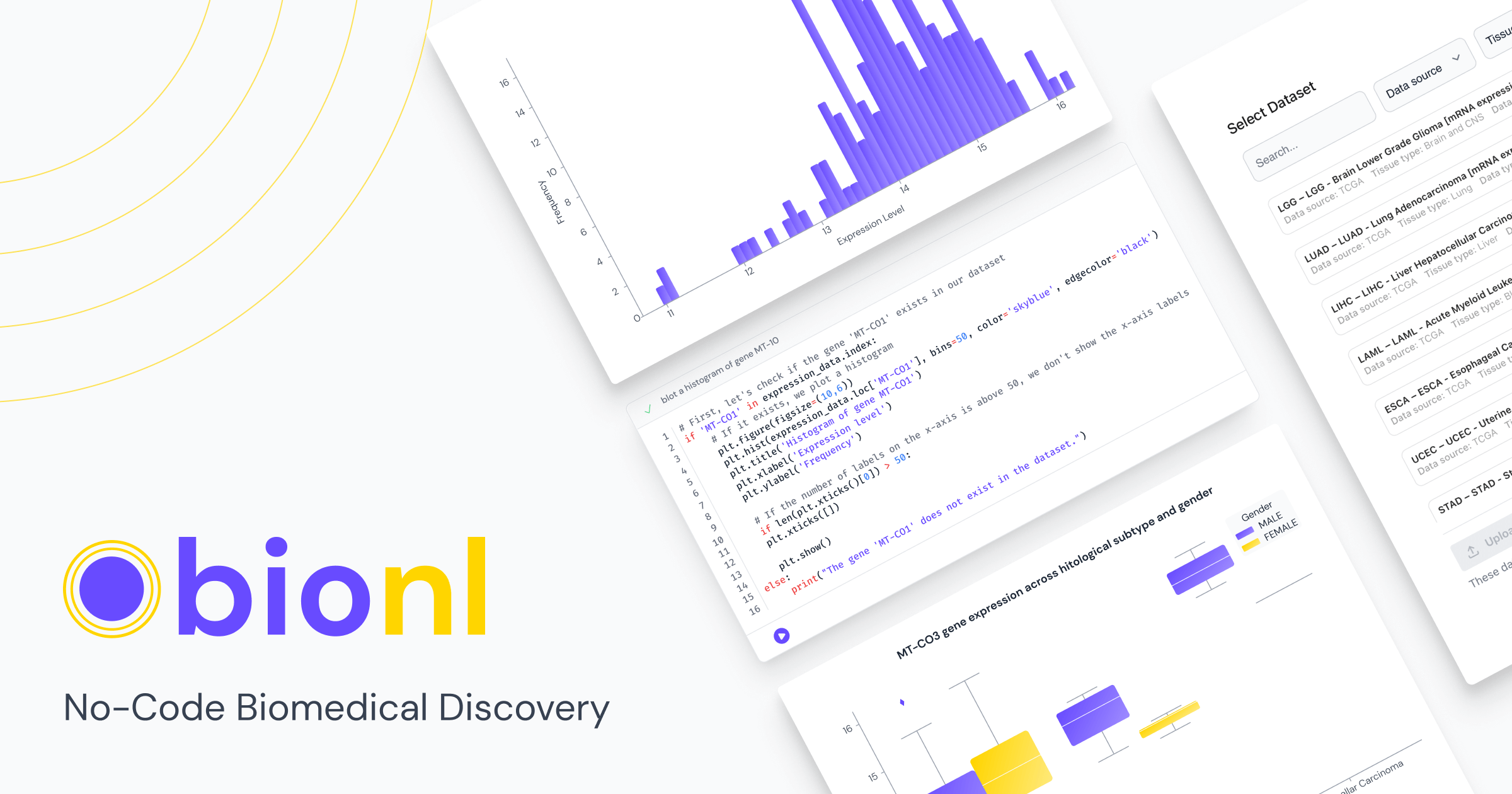Enhancing Literature Review with AI: The Bionl Edge

Introduction
When diving into a research project, conducting a literature review is like assembling the pieces of a vast puzzle. It provides a panoramic view of what's already known, highlighting gaps ripe for exploration. Traditionally, this process has been manual, often resembling a marathon of reading, evaluating, and synthesizing. But what if we could transform this marathon into a sprint? Enter AI-driven literature reviews, a game-changer in research methodology, and an area where Bionl shines.
Literature Review Aim
- Gain a comprehensive understanding of the existing knowledge on a topic: By reviewing the relevant literature, researchers can familiarize themselves with the key concepts, theories, and methodologies that have been used to study a topic. This knowledge can help them to develop their own research questions and hypotheses.
- Identify gaps in the literature: By synthesizing the findings of previous research, researchers can identify areas where more research is needed. This can help them to develop their own research projects that address these gaps.
- Position their research within the context of existing knowledge: By understanding the current state of the field, researchers can position their own research within the context of existing knowledge. This can help them to make a more significant contribution to the field.
- Learn from the work of other researchers: By reviewing the work of other researchers, researchers can learn from their successes and failures. This can help them to improve their own research methods and design.
- Develop their critical thinking skills: By evaluating the quality and relevance of previous research, researchers can develop their critical thinking skills. These skills are essential for conducting high-quality research.
The Classic Approach to Literature Reviews
In traditional literature reviews, researchers embark on a methodical journey:
- Formulating the Question: It starts with defining the research question - the guiding star of the entire review.
- Hunting for Sources: Next is the hunt for relevant literature, scouring through databases and references, often akin to finding a needle in a haystack.
- Critical Analysis: Each selected source undergoes meticulous scrutiny for quality and relevance.
- Synthesis: The grand finale is weaving these insights into a cohesive narrative, spotlighting trends and patterns.
Revolutionizing Reviews with AI and Bionl
Bionl.ai takes the wheel here, injecting AI power into this process. How does it change the game?
- Source Identification: Bionl's AI-driven engine swiftly navigates through oceans of data, pinpointing relevant literature with precision.
- Data Extraction: It then extracts crucial details - findings, methodologies, authorship - with an eye for what matters, where you can also choose the number of results showing, and sort them through different filters.
- Summarization: Bionl doesn’t just find information; it distills it, offering researchers a distilled essence of extensive literature.
Comparing the Two Approaches
Conclusion
The importance of a literature review in research cannot be overstated. It lays the groundwork for understanding the current state of knowledge and for identifying new avenues of inquiry. AI's role in evolving this process is monumental, offering speed, precision, and depth that manual methods can't match. Bionl, in particular, stands out in this AI-driven revolution. It not only accelerates the literature review process but also enriches it, enabling researchers to dive deeper into their subjects with greater efficiency and insight. Bionl is more than a tool; it's a catalyst for innovation in research methodologies.



